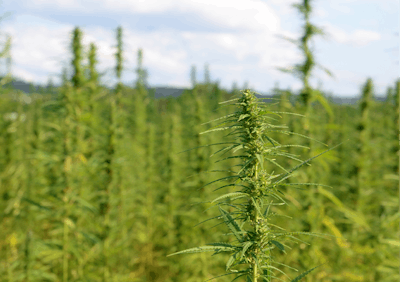
Alexis Bortell began suffering from severe, sometimes life-threatening seizures when she was 7 years old. She spent most school days in the nurse’s office recovering from her episodes, missing out on her education and the fun of being a kid.
Doctors in Texas, where Alexis and her family resided, offered different treatments, each one more drastic than the last. One doctor recommended a medication used in lethal injections, and another recommended a medication that could leave Bortell infertile. The most extreme solution came from a doctor who offered a lobotomy when Bortell was just 10 years old.
Her parents relocated to Colorado to give medical cannabis a shot. (At the time, Texas did not have a medical cannabis program that allowed Bortell’s parents to treat her. Questions remain as to whether that would be possible under the new state regulations.)
Now 12, Bortell enjoys a near-seizure-free life thanks to medical cannabis. She goes to school; works on her business ventures-OneLuv Organics, a hand-crafted goat-milk soap line, and Patches of Hope, where she grows food for the homeless-and has become the face of a lawsuit being brought against the Department of Justice (DOJ) and U.S. Attorney General Jeff Sessions.
Bortell is a co-plaintiff in the suit along with fellow medical cannabis patients including former NFL lineman Marvin Washington, U.S. Army veteran Jose Belen, Jagger Cotte, and The Cannabis Cultural Association (CCA).
Alexis Bortell v. Jeff Sessions
Bortell and the other plaintiffs are set to appear Feb. 14 in New York’s 9th circuit.
“We will be opposing the government’s motion to dismiss our case,” says Lauren Rudick, the lawyer representing the plaintiffs in the suit. “We will argue that we have standing and have sufficiently stated multiple claims for relief.”
Rudick’s clients’ main argument is that the Controlled Substances Act (CSA) infringes on constitutional rights. For example, despite being the daughter of two veterans, Bortell cannot visit a military base to receive medical care and other free military services to which she is entitled; she cannot physically lobby her representatives in Washington; and she cannot visit a national park or go on a school trip with her classmates to a public or federal property without committing a felony.
The CCA is suing on behalf of minorities across the country who have been targeted by federal authorities for cannabis-related crimes. The CCA alleges “the Controlled Substances Act has been enforced against people of color exponentially more than Caucasians,” Rudick says. Washington, the former NFL player, is seeking to rectify that by suing for increased access to minority assistance and startup funding.
“People of color are grossly underrepresented in the cannabis space except when it comes to arrest/prosecution. It would help if people of color had access to federal funding, which would be available to minorities in any other (federally legal) businesses,” Rudick explains.
Belen, the Army veteran, hopes to change federal policy that prevents Veterans Affairs doctors from recommending medical cannabis to treat suicidal thoughts caused by Post Traumatic Stress Disorder (PTSD).
Yet these co-plaintiffs aren’t the only ones going after the U.S. government over its cannabis laws. Here’s a brief overview of other major cannabis cases currently in the hands of America’s judicial system.

C.A.H.C. v. IRS
Cannabis business owners are acutely aware of the restrictions placed on them and their businesses by Internal Revenue Service (IRS) tax code 280E. But one Colorado duo is fighting the IRS over what their lawyer calls an “absurd” double-taxation of their personal income.
The owners of Colorado Alternative Health Care (C.A.H.C.), a vertically integrated cannabis business in Palisade, Colo., are suing the IRS after the government agency determined the income declared in their W-2 is subject to taxation as S-Corp revenue due to 280E.
“What is happening here … is the same income is being reported on the individual tax report twice,” says Rachel Gillette, the attorney from the Denver-based Greenspoon Marder law firm representing C.A.H.C. “Basically … the same exact dollar is subject to tax twice merely because it’s subject to 280E.”S corporations may pass business income to shareholders (i.e., “officers”) to avoid paying taxes. Those shareholders then report the income on their personal tax returns and are taxed at individual rates instead of corporate rates. This allows small companies and startups to avoid paying the large corporate rate.
“It’s the perfect illustration of the absurd results that happen when you apply an archaic law whose only purpose is to further punish people who are operating criminal enterprises, which is no longer the case in state-legal cannabis markets,” Gillette says.
Neither the owners of C.A.H.C. nor their attorney expect any significant change to 280E to result from this lawsuit—it is, after all, mostly about the owners’ personal income tax—but Gillette believes it can be “a crack in the glass.”
“[Hopefully this lawsuit] will show people the absurdity that results from punishing people playing by the rules. … And it could translate to some good savings for marijuana businesses.”
Gillette received a reply to her filing from the IRS in January. The agency dismissed her clients’ claims. Her next move is to reply to the IRS and await its response before a judge looks at the arguments presented by both parties and makes a ruling, although that could be more than a year from now.Gillette says the industry’s best chance of being freed from 280E is if Congress makes a legislative fix. She is hopeful that will happen soon, since Sessions rang in the new year by rescinding the guidelines noted in the Cole Memos and other cannabis-friendly Obama-era policies.
HIA v. DEA
The Drug Enforcement Administration (DEA) is being brought to court by the Hemp Industry Association (HIA). The HIA claims that the DEA’s scheduling of all cannabis extracts, including hemp-derived CBD, a non-psychoactive compound found in cannabis, goes against the Farm Bill that Congress passed in 2014.
That bill defined industrial hemp for the first time and described it as “all parts of the plant cannabis sativa l., so long as the dried materials of the plant is less than 0.3 percent THC,” says HIA lead counsel Patrick Goggin.
In January 2017, the DEA finalized a rule that would help the agency and the federal government stay compliant with United Nations drug treaties by assigning a four-digit drug code to all marijuana extracts. Therein lies the problem, Goggin says.
“They define [marijuana extracts] as one or more cannabinoids extracted from the plant genus cannabis,” he explains, meaning “there is no exception within the rule for industrial hemp pursuant to the Farm Bill, and their failure to carve out an exception means they are scheduling industrial hemp extracts” the same as cannabis extracts. The DEA’s interpretation essentially criminalizes interstate commerce, which the HIA believes the Farm Bill allows.
The HIA argues that hemp-derived extracts should be classified as nutraceuticals and natural products instead of drugs needing to be approved by the Food and Drug Administration (FDA). Its position is that the DEA is acting outside the purview of congressional intent by disregarding Congress’s definition of hemp in the Farm Bill.
The HIA will present oral arguments in an appellate hearing on Feb. 15 in the 9th U.S. Circuit court, but it could take several months before the judges issue a ruling.
With these lawsuits all hoping to make significant progress this year, it seems the federal authorities are going to be as busy defending themselves from cannabis businesses as they are trying to prosecute them.


















